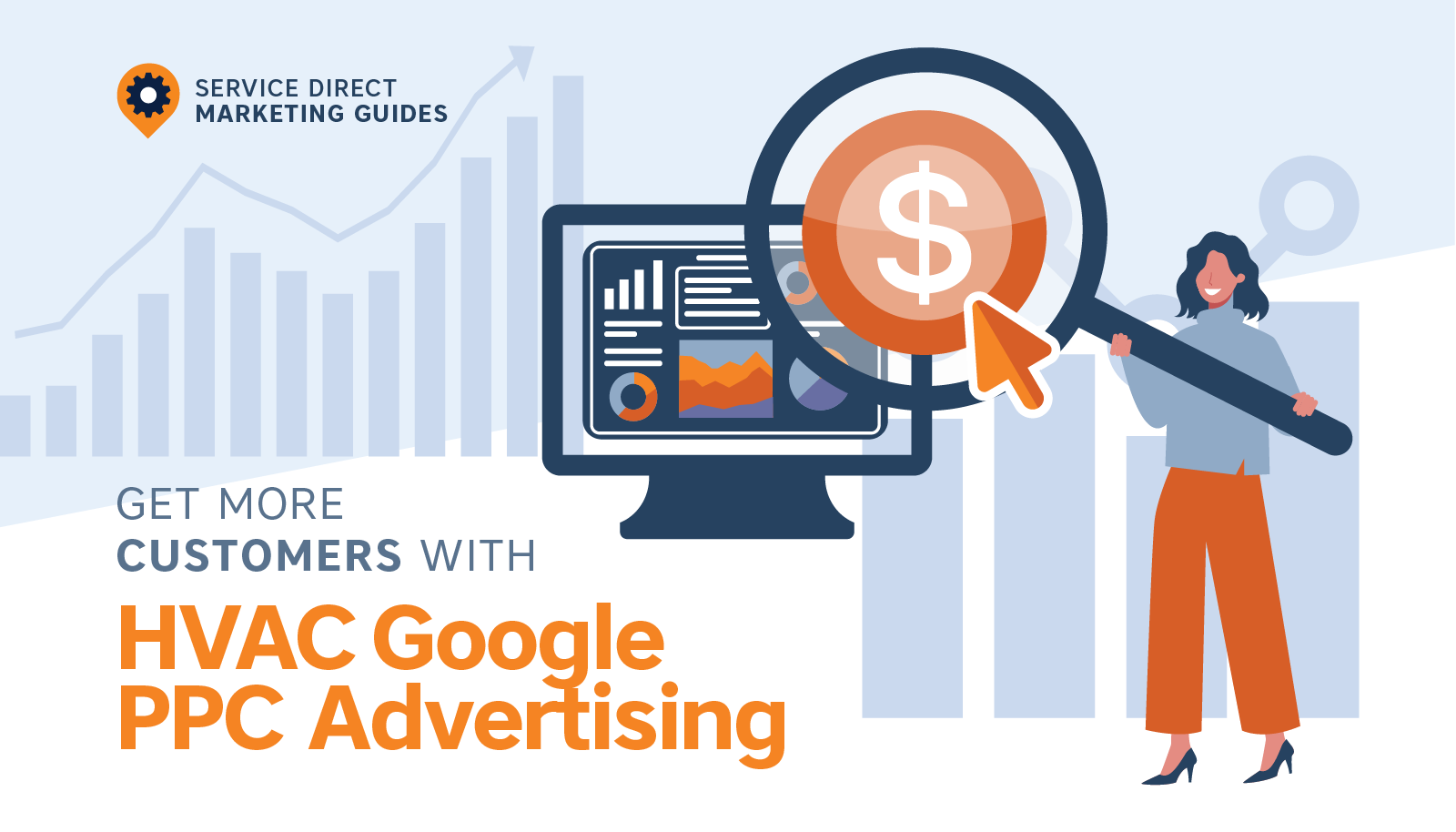How to Bring in More Customers from Google with HVAC PPC Ads
Updated on February 7, 2023
If you're an HVAC company, then you know that bringing in new customers is just as important as maintaining relationships with existing ones. One of the most efficient and effective ways to bring in these new leads is through PPC search advertising on Google.
In fact, 87% of small business marketers reported that PPC advertising was an effective part of their overall marketing strategy.

In order to have a successful PPC journey, you need to start with a strong plan that includes several key strategies. If you’re hung up on this key first step, you’re not alone—32% of businesses listed planning and strategy as the biggest challenge with PPC advertising.
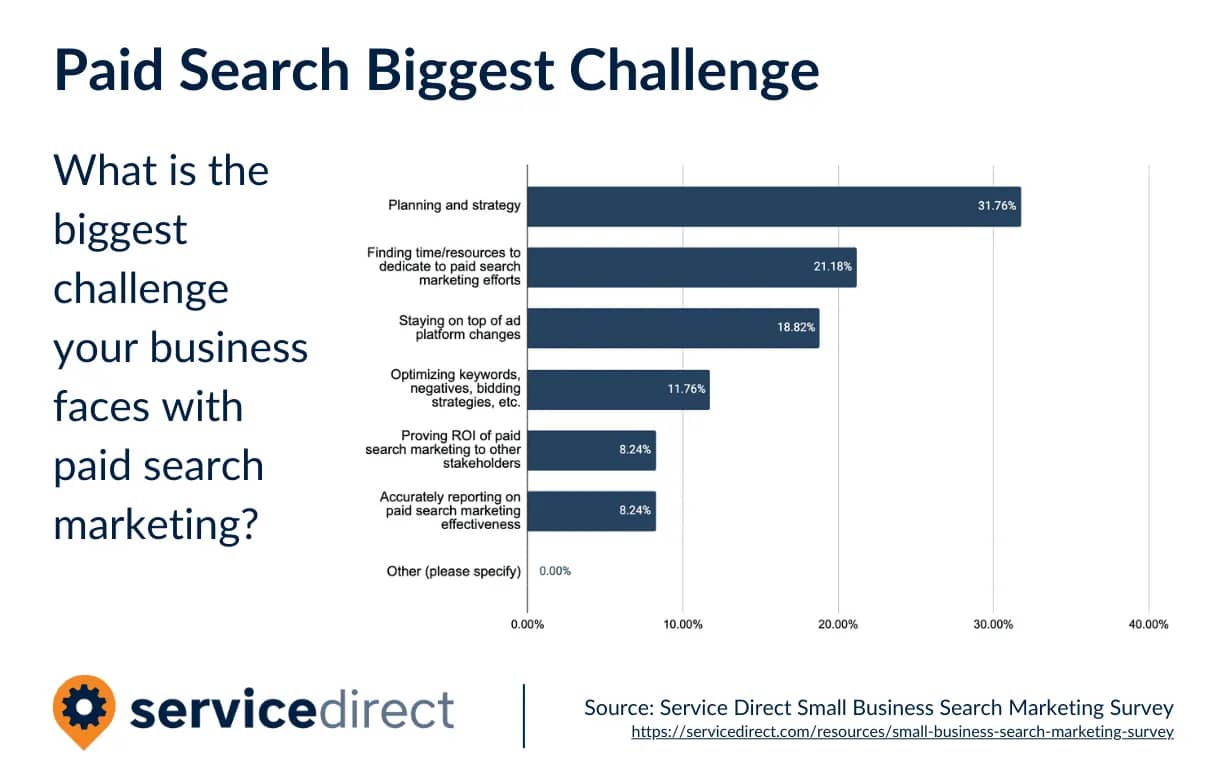
In this blog post, we will discuss how you can use PPC ads to bring in more business from Google by starting from the beginning. We'll go on to cover everything from keyword budgeting and PPC tools to website optimization and landing page usage.
So whether you're just starting out with PPC or you're looking for ways to improve your existing campaigns, this blog post is for you!
Keywords and their place in PPC
As an HVAC company, you know that no matter what time of year it is, there is often plenty of work to be done. But with so much competition out there, how can you make sure that your PPC search ads are getting seen by potential customers?
The answer lies in choosing the right keywords.
Keywords are the terms or phrases that people use when they're searching for products or services online.
By carefully selecting the right keywords for your PPC ads, you can make sure that your ad appears in front of people who are actually interested in what you have to offer.
Step 1: Choosing the Right Keywords
So how do you choose the right keywords?
In part, settling on keywords can be as simple as thinking about the terms that your potential customers might use when searching for an HVAC company. What kind of services would they be looking for and what search terms would they use to find those services?
Try to use long-tail keywords, which are specific phrases that are more likely to be used by people who are ready to buy.
For example, instead of just using "air conditioning," try adding a location like "air conditioning in Los Angeles." By being specific, you can make sure that your ad is served to people who are actually looking for what you have to offer.
In addition to putting yourself in the place of the searcher, we also recommend checking out Google Keyword Planner. This is a free research tool that allows you to find keywords related to your HVAC business.
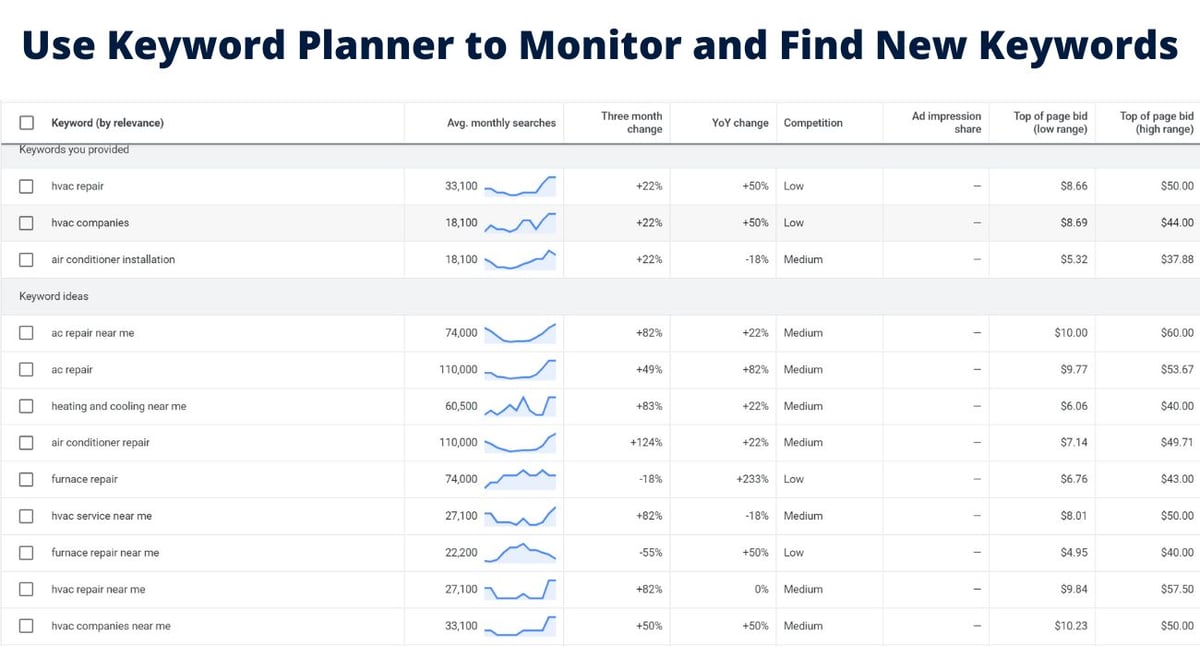
The keyword planner also provides traffic estimates for each keyword, so you can gauge the potential reach of your campaign. In addition, the keyword planner provides suggested bid amounts for each keyword, so you can budget your campaign accordingly (don't worry, we'll get to your budget later).
Google Ads Keyword Planner is an incredibly helpful tool to dive deeper into keywords relevant to your HVAC business.
Step 2: Establish a Keyword Budget
One of the most essential steps in building a successful HVAC PPC campaign is establishing and sticking to a keyword budget.
There are a number of factors to consider when setting a keyword budget, including the competitiveness of the keywords you are targeting and the expected conversion rate.
However, perhaps the most important factor is your overall marketing budget. Once you have determined how much you are willing to spend on your PPC campaign, you can then begin to allocate funds to specific keywords.
By doing this, you'll be able to ensure that you're not overspending on keywords that aren't bringing you results.
It's also important to remember that your keyword budget will likely fluctuate over time as your PPC strategy evolves. As such, it's important to regularly review your keywords and adjust your budget accordingly.
By carefully planning your keyword budget, you can ensure that your HVAC PPC campaign is successful and profitable.
Smart Bidding
Google Smart Bidding is an automated bidding strategy that uses machine learning to optimize your search ads in real time.
This tool takes into account a variety of signals when making keyword-bidding decisions, including device, location, time of day, browser, past conversion history, and many more.
In general, Google Smart Bidding should allow your HVAC ads to see increased conversion rates and return on investment.
If you're new to Google Smart Bidding, it's important to remember that it's an automated strategy, which means it will take some time for the algorithms to learn about your campaign and optimize your bids accordingly.
However, once it's up and running, it can be a valuable tool for achieving your desired results.
performance max campaigns
One of Google’s newer features is called Performance Max campaigns. Performance Max uses automation to generate ads across channels such as YouTube, Google Maps, and Gmail for a single campaign.
In other words, you can maximize the performance of your campaigns by reducing the limitations and allowing smart bidding to do a chunk of the work for you.
It’s important to note that automated campaigns like these aren’t going to be a good fit for every business so you’ll want to pay close attention to their performance and spend in the beginning so that things don’t get out of control.
Step 3: Don't Forget About Negative Keywords
Once you have a solid plan in place for your HVAC PPC ads, it's important to use negative keywords. Negative keywords help you exclude certain words from your campaigns so that your ads don't show up when people search for those terms.
For example, if you're an HVAC company, you might want to add "HVAC training" or "HVAC careers" as negative keywords. That way, your ad won't show up when people are searching for terms not related to your services, and you'll avoid wasting money on clicks that have no chance to convert.
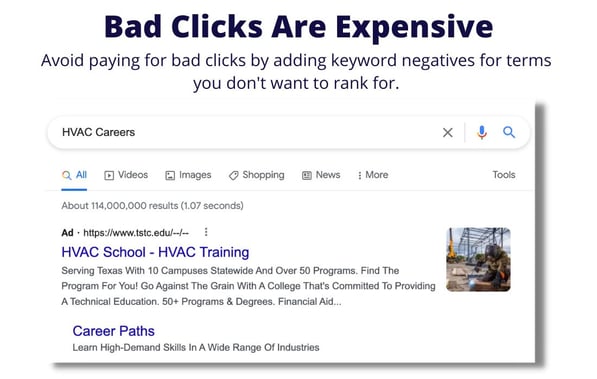
In addition, using negative keywords can help you improve your Quality Score, which can lower your costs and improve your ad position.
So if you're not using keyword negatives in your PPC campaigns, you're missing out on a valuable tool that can help you save money and improve your results.
Improve Your Ads With Reporting and Tracking
Once you get your HVAC PPC ads running, it's important to make sure they are performing well by tracking and reporting on their performance on a regular basis.
By doing so, you can identify any issues with your campaigns and make necessary adjustments to hopefully improve results.
Additionally, reporting provides valuable insights into what is working and what isn't, allowing you to continuously optimize your PPC efforts.
While it may require some extra research, tracking and reporting on PPC ad performance is essential for running successful campaigns.
Plus, 91% of companies are easily able to track the performance of their PPC campaigns, so not only can it be done, but it can be done without too much effort!
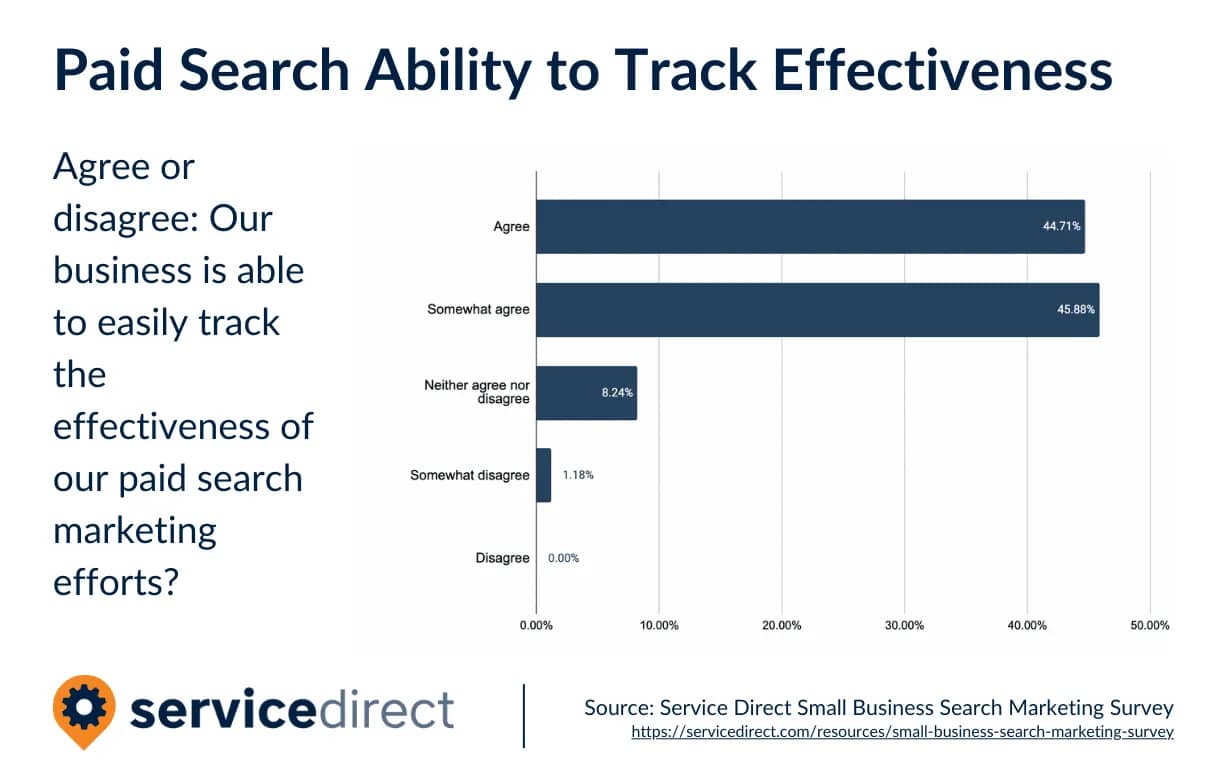
Understanding Conversion Tracking
Google's conversion tracking tool is a powerful way to monitor the success of your search ads.
Tracking conversions can help you understand which keywords are driving results so that you can focus your efforts on those keywords as well as improve the ads that are not performing.
You can also see how many people took the desired action, whether it's clicking through to your website or making a purchase, as well as how your ads are performing across different devices and platforms.
While this information can be very valuable in determining whether your campaign is working and where it might need improvement, we also understand that it can be overwhelming.
That's why we recommend starting small as you get the hang of conversion tracking: focus on conversion rate, cost per conversion, and the overall conversion columns to start.
What is a Quality Score?
Quality Score is a metric used by Google to determine the quality of your HVAC PPC ads. This metric is important because it affects your ad rank, which determines where your ad appears on the search engine results page.
A high Quality Score means that your ad is relevant and informative, and users are more likely to click on it. Conversely, a low Quality Score indicates that your ad is not relevant or informative, and users are less likely to click on it.
Quality Score also affects your cost-per-conversion. The higher your Quality Score, the less you pay per conversion because users are more likely to see your ad and convert, which Google takes into account.
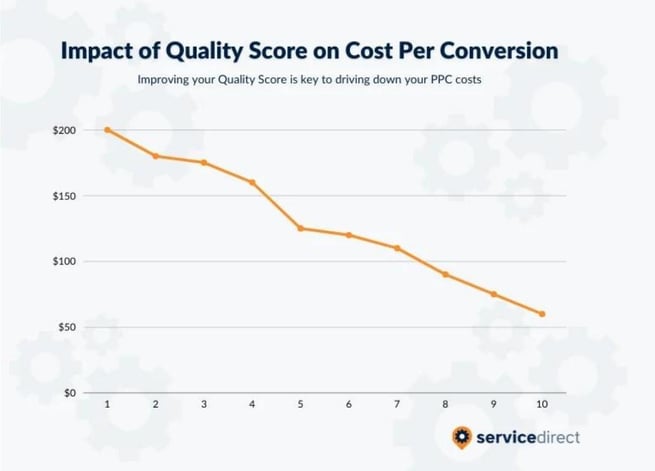 Service Direct results based on PPC campaigns we run for our in-house HVAC traffic
Service Direct results based on PPC campaigns we run for our in-house HVAC traffic
This metric can be helpful when adjusting and managing your HVAC PPC ads, but it's also important not to use Quality Score as a singular metric with regard to your ads.
Quality Score can be misleading and if you aren’t measuring it against other key metrics like conversion rate, you might waste time and money on things that don’t necessarily need to be changed.
use 3rd-party tools to get ahead
In addition to the great tools Google provides to improve your HVAC PPC strategy, there are a number of 3rd-party PPC tools that can set you up for success.
In fact, we found that 30% of small businesses don’t use 3rd-party tools in their search marketing strategy, which means this is an opportunity for you to get ahead of a chunk of the competition.
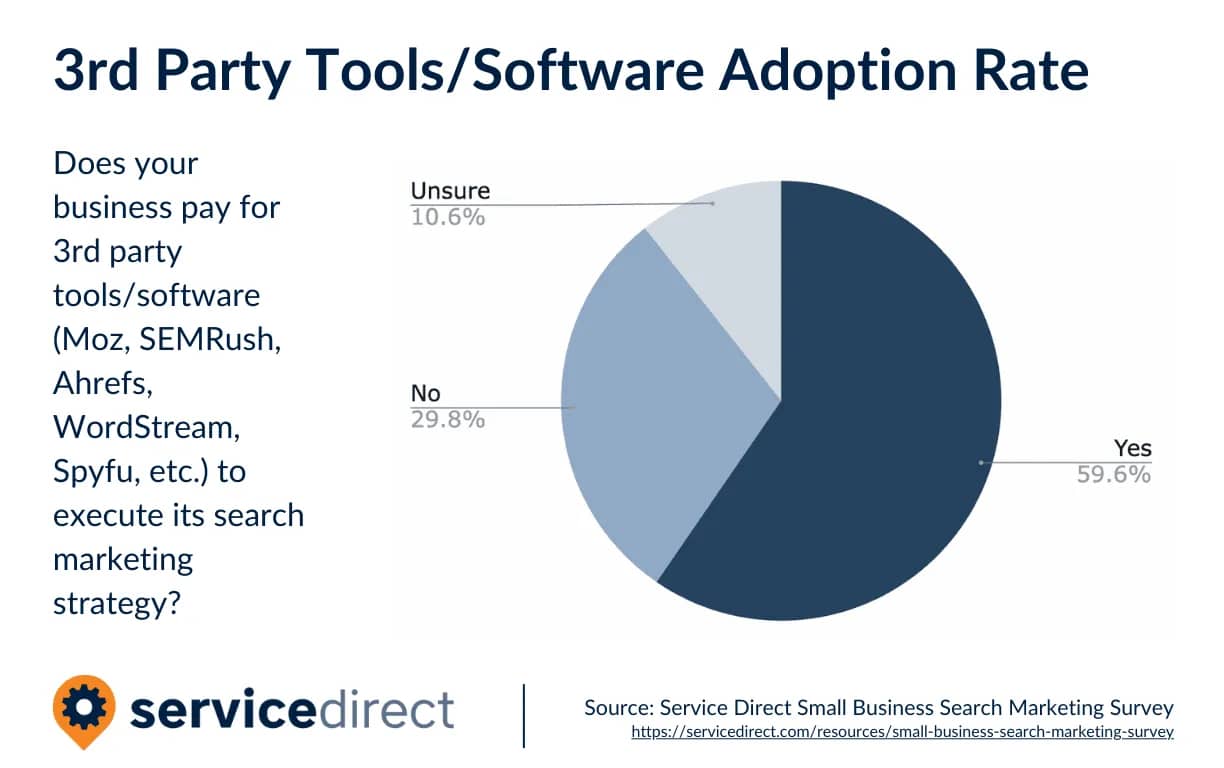
Types of PPC Tools:
- Management: Top-level tools that allow you to purchase ad space and get in front of potential customer
- Reporting: Tracking tools that tell you how well your campaigns are doing and provide insight into areas for improvement
- Research: Keyword and competitor research tools that help you deep dive into what people are searching and how you can use that to succeed
- Landing Page: Tools that help on every level of landing page usage from creating and hosting to optimization and tracking
- Optimization: Takes some of the work off your hands for tracking and improving PPC campaigns through automation and key insights
- Attribution: Allows you to see when a new customer clicked on your PPC ad at some point in their journey, even though the ad may not have been what ultimately closed the deal
You’ll want to take some time to research the different tools available and make sure you are being realistic with what you can afford and how tech-savvy you are. But no matter what level you’re at, there are definitely tools out there for you.
Pair PPC Ads With a Website Designed to Convert
Your website is the digital face of your HVAC business. It's where potential customers go to learn more about your services and decide whether or not they want to do business with you.
That's why it's so important to make sure your website is high-quality and designed to convert visitors into leads.
Even if you have the best PPC ad strategy in the world, it won't matter if your website can't close the deal. In fact, we found that having a bad website is worse than not having a website at all.
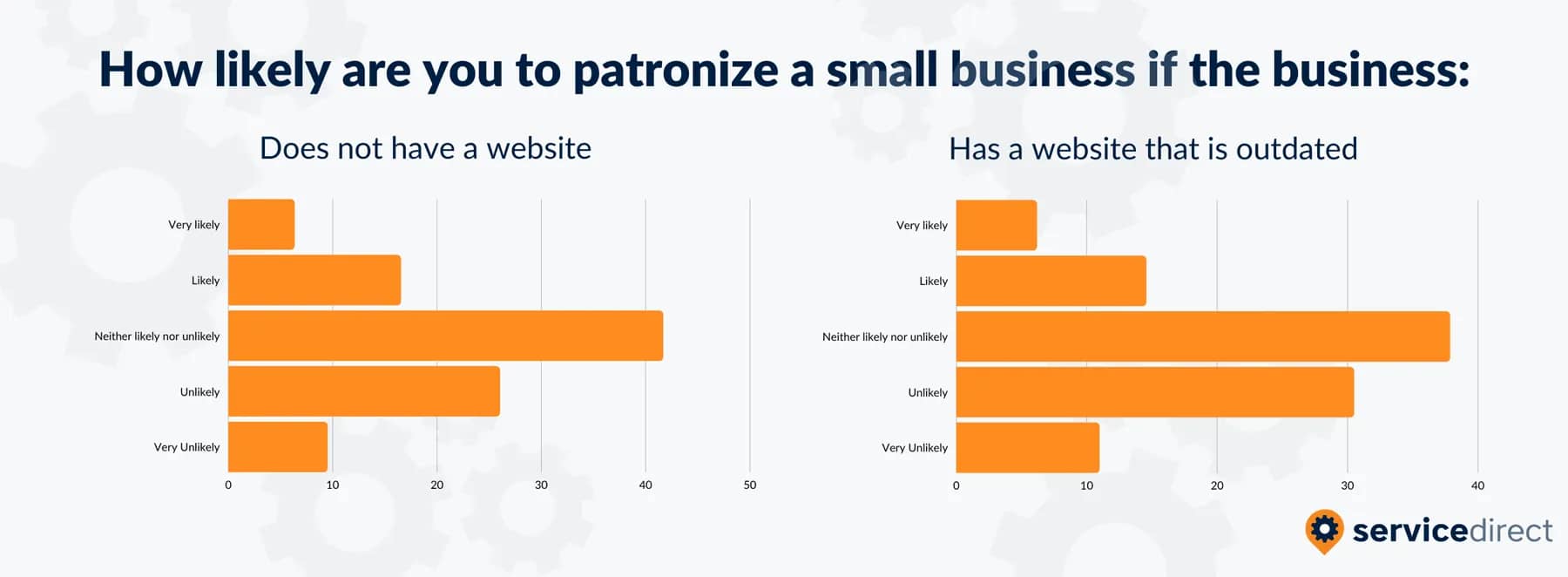
So, make sure your website has a strong call to action, informative content, and is high performing, and you'll be well on your way to generating more leads and growing your business.
Look at Appearance and Performance
When it comes to creating a high-quality website that converts, appearance and performance are both key factors.
A well-designed website will make a good first impression on visitors, while a website that loads quickly and is easy to navigate will keep visitors engaged.
Keep these elements in mind when auditing your existing website or creating a new one to turn potential customers into leads:
Write engaging and useful content.
When someone lands on your site, you want to have content that clearly answers their question. People won't read much past the basics of what you're saying so use this space to write concise content with keywords to boost organic search traffic.
Use CTAs that stand out regularly and often.
Imagine someone is searching for HVAC help in an emergency and they land on your site. They probably aren't going to read your content beyond ensuring that you can help with their issue, so you'll want to make sure your CTA is easy to see.
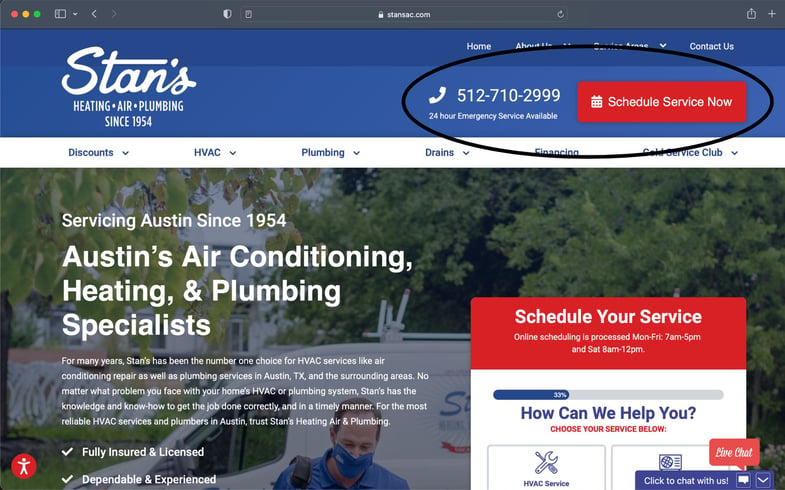 Source: stansac.com
Source: stansac.com
Make sure your site is optimized for mobile.
66% of consumers are primarily searching for small businesses on their mobile devices. This means that if your website is not designed to work with mobile, you could be missing out on up to two-thirds of potential customers!
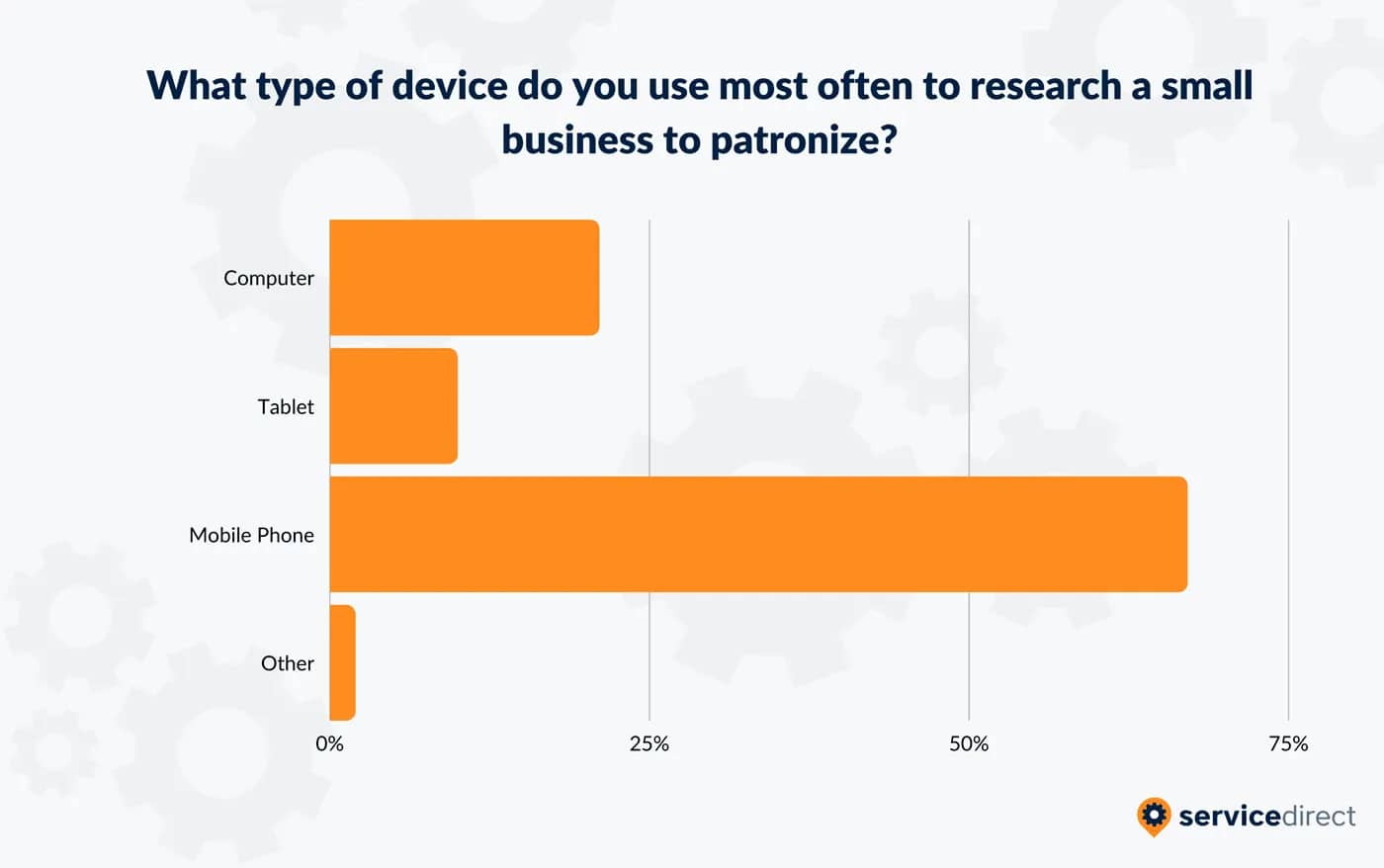
Don't forget about load speed.
If a searcher has to wait for your site to load, they're probably just going to look elsewhere. Fortunately, there are tons of tools available to test and regularly monitor your website's load speed and other valuable metrics.
Encourage Conversion with Landing Pages
A strategy to encourage conversion on your HVAC website is to send potential customers to landing pages designed for your PPC ads.
By doing this, you can give visitors the information they need to make a decision about your company's HVAC services based on the search they made to arrive at your site.
With 87% of companies using dedicated landing pages, you’ll want to do this in order to keep up with the competition.
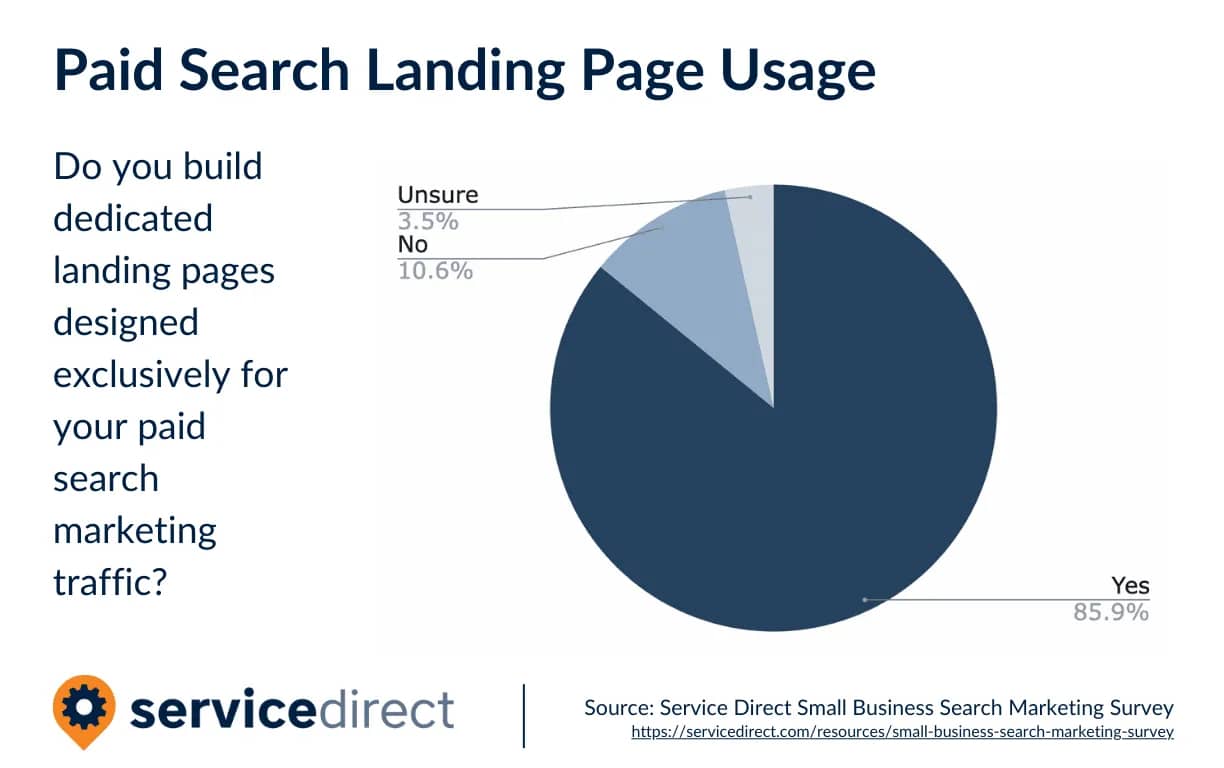
Make sure that these pages are well-designed and relevant to your target audience.
As seen in the below example, it's important to make sure that your PPC ads are aligned with the content on your website. 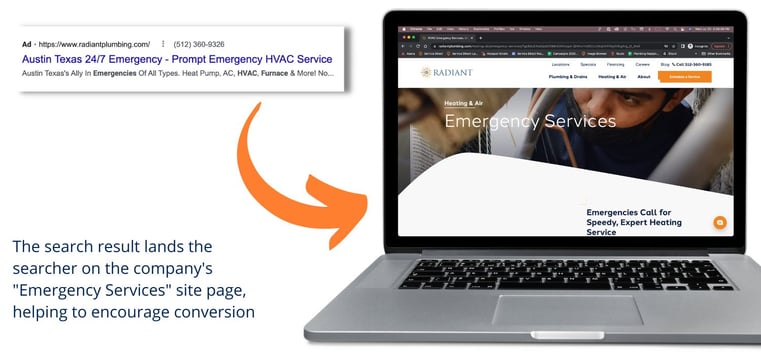
That way, if someone is searching for AC Emergency Repairs, you are sending them to a page focusing on that rather than asking them to root around your site or homepage for the CTA.
By taking these steps, you can increase the chances that potential customers will take the next step and contact your business for more information about your services.
in conclusion
Now that we’ve gone over the basics of how to set up PPC campaigns for your HVAC business, it’s time to get started!
Remember, these tips are the basics to get you started with HVAC PPC, but if you want to get even more detailed information about how to make your PPC campaigns successful, download our free marketing guide for HVAC businesses today.

